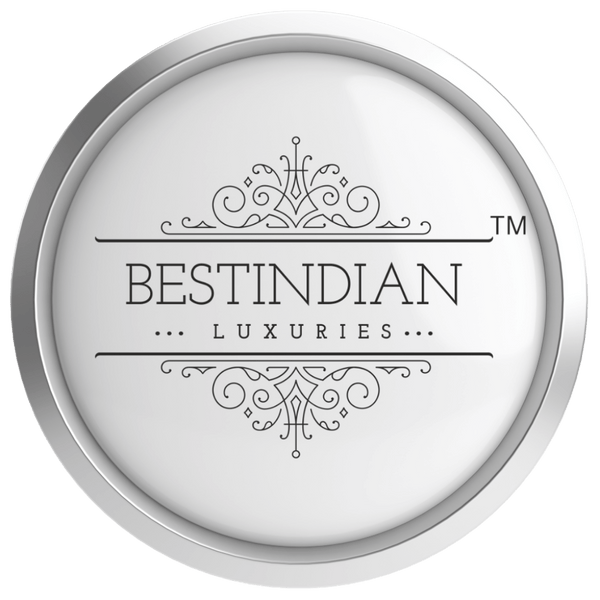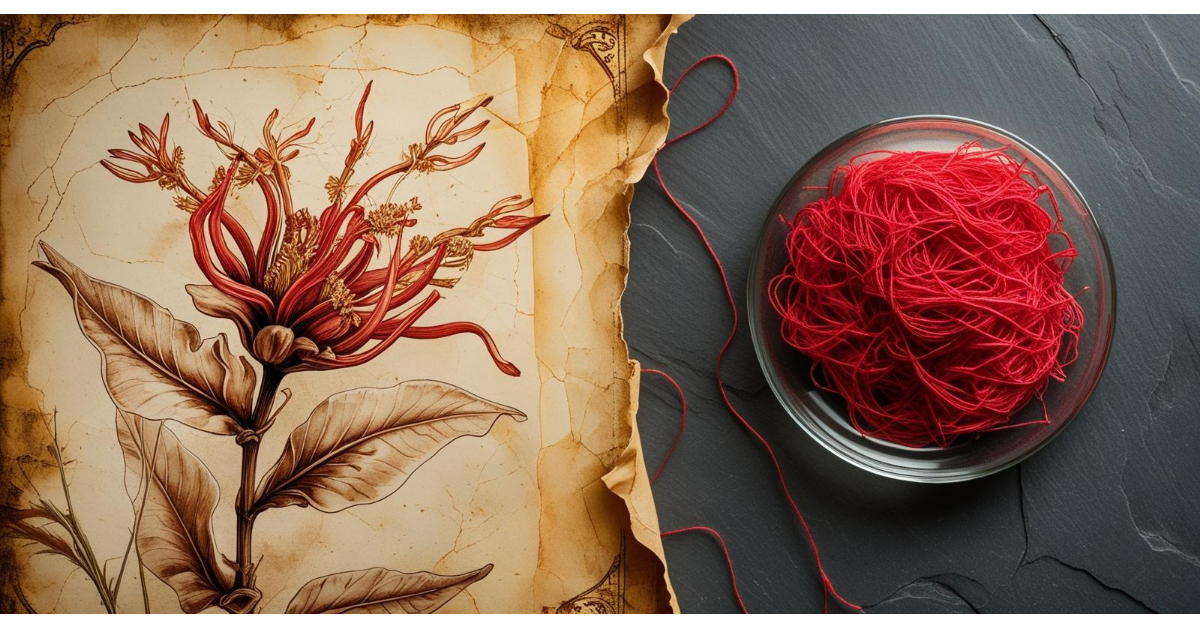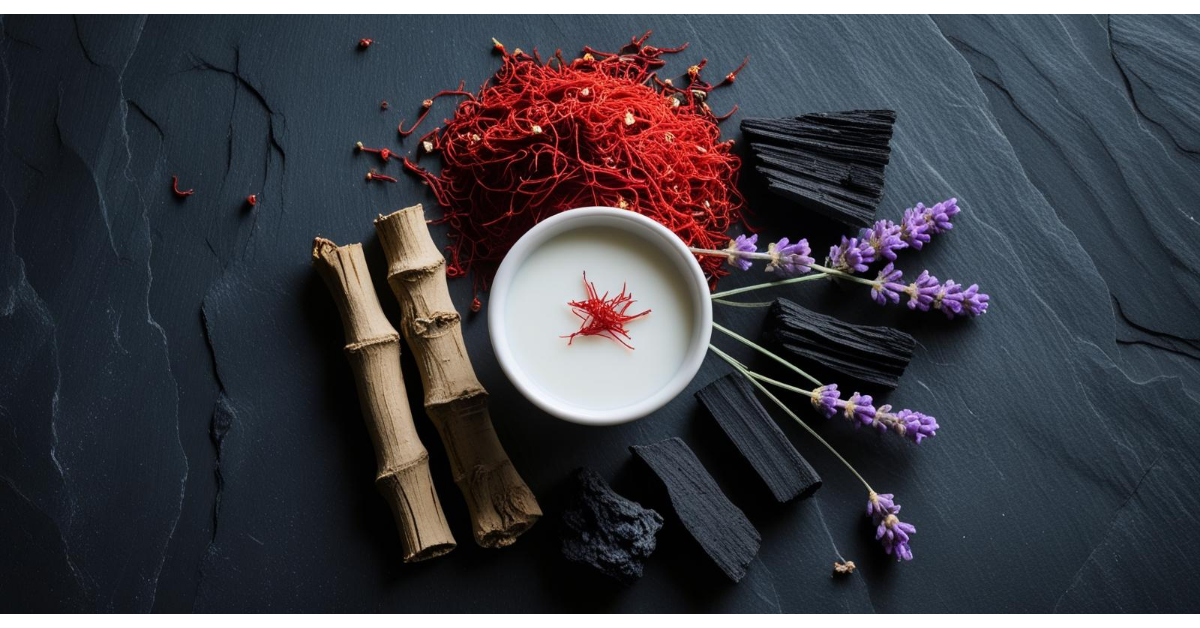
Natural, Organic & Herbal Shampoos: Your Definitive Guide to Pure, Chemical-Free Hair Care in India
BestIndian LuxuriesShare
The landscape of personal care in India is undergoing a significant transformation, with a clear and accelerating consumer shift towards products that are natural, organic, and herbal. This conscious movement stems from a growing awareness of the potential impacts of synthetic chemicals on long-term health and the environment, coupled with a renewed appreciation for holistic well-being and authentic, nature-derived solutions.
However, navigating the often-murky waters of "natural" claims can be challenging. What truly distinguishes an organic shampoo from one that is merely "herbal" or "natural-inspired"? This definitive guide aims to demystify these terms, delve into the science-backed benefits of genuinely pure formulations, explore the meticulous art of crafting luxury natural hair care, and empower you to choose products that deliver both exceptional results and peace of mind. Understanding these distinctions is key in the quest for the Best Indian Shampoo.

Decoding the Labels: Understanding Natural vs. Herbal vs. Organic Shampoos
The terms "natural," "herbal," and "organic" are often used interchangeably in cosmetic marketing, but they carry distinct meanings and implications for the purity and composition of a shampoo.
-
Natural Shampoos: Broadly, a "natural shampoo" implies that a significant portion of its ingredients are derived from natural sources like plants (e.g., fruit extracts, seed oils, essential oils) or minerals, rather than being synthetically manufactured in a lab. These ingredients are typically processed through minimal physical means such as cold pressing, distillation, or simple filtration to retain their inherent properties. However, the term "natural" is not always strictly regulated in cosmetics, leading to a wide spectrum of interpretations. Some "natural" shampoos might still contain a percentage of synthetic preservatives, fragrances, or texturizers. True natural integrity is often best assessed by scrutinizing the full ingredient list for the absence of undesirable synthetics.
-
Herbal Shampoos: An "herbal shampoo" is a specific type of natural shampoo that emphasizes the inclusion of botanical extracts and traditional medicinal herbs renowned for their therapeutic or cosmetic benefits for hair and scalp. These formulations often draw from traditional systems like Ayurveda, utilizing herbs such as Amla, Reetha, Shikakai, Neem, Aloe Vera, Hibiscus, and Bhringraj, which have a long history of use and are known for properties like cleansing, conditioning, promoting hair growth, or addressing scalp issues like dandruff. The focus is on leveraging the inherent bioactivity of these plant compounds. While inherently natural, an herbal shampoo is not necessarily organic unless its herbal ingredients are specifically cultivated according to organic farming standards.
-
Organic Shampoos: "Organic shampoo" represents a higher standard of purity and naturalness. This designation implies that the agricultural ingredients within the formula have been grown and processed without the use of synthetic pesticides, herbicides, genetically modified organisms (GMOs), or artificial fertilizers. The emphasis is on sustainable farming practices that promote biodiversity and soil health. For a consumer to be assured of these claims, independent third-party certifications are crucial. Globally recognized standards like COSMOS Organic (which BestIndian™ products adhere to) provide stringent criteria not only for the ingredients (requiring a high percentage to be certified organic) but also for the formulation processes, manufacturing practices, and even packaging, ensuring environmental responsibility and consumer safety. This certification is a reliable indicator that you are choosing a product that meets the highest international benchmarks for natural and organic integrity.
Understanding these distinctions is the first step towards making truly informed choices in your pursuit of pure and effective hair care.
The Science & Benefits of Choosing Pure Formulations
The move towards natural, organic, and herbal shampoos is not merely a trend but a conscious decision rooted in the desire for safer, gentler, and often more effective hair care. The benefits stem from both the inclusion of beneficial bioactive compounds from plants and the deliberate exclusion of potentially harsh or harmful synthetic chemicals.

-
Why "Chemical-Free" (or More Accurately, "Free From Harsh Synthetics") Matters: While everything is technically a chemical, the concern in "chemical-free shampoo" searches typically refers to avoiding potentially problematic synthetic ingredients commonly found in conventional shampoos. These include:
- Sulfates (SLS/SLES): As detailed in our guide to sulfate-free shampoos, these strong detergents can strip natural oils, leading to dryness, irritation, and damage.
- Parabens (e.g., Methylparaben, Propylparaben): Used as preservatives, some parabens have raised concerns due to their potential to mimic estrogen and act as endocrine disruptors, with studies detecting them in human tissues.
- Silicones: While they can provide temporary smoothness and shine, heavy or non-soluble silicones can build up on the hair, weighing it down and preventing moisture absorption over time.
- Phthalates (e.g., Dibutyl Phthalate, Diethyl Phthalate): Often found in synthetic fragrances (which may not be listed individually), phthalates have been linked in some studies to reproductive and developmental concerns.
- Formaldehyde & Formaldehyde-Releasers: Used as preservatives, these are known irritants and potential carcinogens.
- Artificial Colors & Fragrances: Can be sources of allergens and irritants for sensitive individuals. Choosing formulations explicitly free from these and other harsh synthetics minimizes the scalp's exposure to potentially irritating or systematically absorbed substances, reducing the risk of adverse reactions and long-term concerns highlighted in various scientific reports.
-
The Potency of Natural & Herbal Bioactive Compounds: Pure, well-chosen natural and herbal ingredients deliver a wealth of beneficial phytochemicals directly to your hair and scalp:
- Antioxidant Protection: Many herbs like Amla (Emblica officinalis) are rich in polyphenols, flavonoids, and Vitamin C, which exhibit powerful antioxidant activity. These antioxidants neutralize free radicals generated by UV radiation, pollution, and metabolic processes, thereby protecting hair follicle cells from oxidative stress, reducing inflammation, and potentially delaying hair aging.
- Antimicrobial & Scalp Soothing Actions: Botanicals such as Reetha (Sapindus mukorossi), and Aloe Vera (Aloe barbadensis) possess natural antimicrobial, antifungal, and anti-inflammatory properties. These help maintain a healthy scalp microbiome, control dandruff-causing yeasts like Malassezia, and soothe irritation, creating an optimal environment for hair growth. (This supports concepts from our Ayurvedic guide to scalp harmony.
- Natural Cleansing & Conditioning: Herbs like Reetha and Shikakai (Acacia concinna) contain natural saponins that act as gentle surfactants, cleansing without stripping. Others, like Aloe Vera and Amla, provide natural conditioning, hydration, and improve hair texture and shine.
- Nourishment for Hair Strength & Growth: The vitamins, minerals, amino acids, and essential fatty acids present in many plant extracts directly nourish the hair follicles and strengthen the hair shaft, crucial for combating hair fall and promoting healthy growth.
-
The Organic Advantage: Choosing shampoos with certified organic ingredients ensures that these beneficial botanicals are cultivated without synthetic pesticides, herbicides, or GMOs. This minimizes your exposure to potentially harmful chemical residues that plants can absorb from conventional farming. Organic farming also promotes soil health and biodiversity, making it an environmentally responsible choice.
By opting for pure formulations rich in beneficial natural and organic actives, and free from harsh synthetics, you are investing in your hair's long-term health, vitality, and the planet's well-being.
The Phytochemical Powerhouse: How Bioactives in Natural Shampoos Promote Hair Growth & Combat Fall
The efficacy of the best natural and Ayurvedic shampoos in promoting hair growth and mitigating hair fall is not merely anecdotal; it is increasingly understood through the lens of phytochemistry and pharmacology. The botanical ingredients these shampoos champion are rich sources of diverse bioactive compounds, or phytochemicals, that interact with scalp and hair follicle biology at a cellular and molecular level. Understanding these interactions reveals how nature's pharmacy contributes to healthier, more resilient hair.

Key classes of phytochemicals found in herbs like Amla, Reetha, and Aloe Vera—all central to the BestIndian™ formulation—and their scientifically explored mechanisms include:
-
Polyphenols (Tannins & Flavonoids): The Antioxidant Defenders & Growth Promoters
- Source & Chemistry: Amla (Emblica officinalis) is exceptionally rich in hydrolysable tannins like Emblicanin A and B, Pedunculagin, Punigluconin, as well as flavonoids such as quercetin and kaempferol. These are complex aromatic compounds with multiple hydroxyl groups.
-
Mechanism of Action for Hair Health:
- Potent Antioxidant Activity: One of the primary ways polyphenols benefit hair follicles is by neutralizing Reactive Oxygen Species (ROS). Oxidative stress from UV radiation, pollution, and internal metabolic processes can damage dermal papilla cells, impair cell signaling crucial for hair cycling, and accelerate follicular aging, leading to weakened hair and increased shedding. The hydroxyl groups on polyphenols can donate electrons to scavenge free radicals, thus protecting follicular structures. This protective action helps maintain a healthier anagen (growth) phase.
- Stimulation of Hair Follicle Proliferation: Some flavonoids and phenolic compounds have been shown to stimulate the proliferation of dermal papilla cells (DPCs), which are key regulators of hair follicle development and growth. For instance, research on Amla suggests it can promote DPC proliferation and may exhibit 5-alpha-reductase inhibitory activity. 5-alpha-reductase is the enzyme that converts testosterone to dihydrotestosterone (DHT), a hormone implicated in androgenetic alopecia (pattern hair loss) by causing follicle miniaturization. By potentially reducing local DHT formation or its effects at the scalp level, such phytochemicals can support healthier hair growth and reduce thinning.
- Anti-inflammatory Effects: Chronic inflammation at the scalp can impede hair growth. Certain flavonoids and tannins possess anti-inflammatory properties, helping to create a more conducive environment for follicle function.
-
Saponins: The Gentle Cleansers with Added Benefits
- Source & Chemistry: Reetha (Sapindus mukorossi) is a prime source of triterpenoid saponins, including sapindosides and mukorossi saponins. Saponins are amphiphilic glycosides, meaning they have both water-soluble (sugar) and fat-soluble (triterpene) parts, allowing them to act as natural surfactants.
-
Mechanism of Action for Hair Health:
- Gentle Surfactancy: They cleanse the scalp and hair by reducing surface tension and emulsifying oils and dirt, but are generally much milder than synthetic sulfates. This preserves the integrity of the scalp's lipid barrier and prevents the over-drying that can lead to irritation and compensatory oil production, both of which can negatively impact hair follicle health and potentially exacerbate hair fall. (This supports the principles discussed in our guide to sulfate-free shampoos.
- Antimicrobial & Antifungal Activity: Many saponins exhibit antimicrobial properties. This is crucial for scalp health, as an overgrowth of certain yeasts (like Malassezia) or bacteria can lead to dandruff, inflammation, and consequently, hair fall. By helping to maintain a balanced scalp microbiome, saponins contribute indirectly to hair retention.
- Potential for Enhanced Nutrient Absorption: Some studies suggest that saponins can enhance the permeability of biological membranes, which might theoretically improve the scalp's absorption of other beneficial nutrients delivered by the shampoo formulation, though this is an area requiring more specific research in hair care contexts.
-
Vitamins & Minerals: Essential Cofactors for Hair Biology
- Source & Chemistry: Herbs like Amla are a natural source of Vitamin C (ascorbic acid), while Aloe Vera provides a spectrum of vitamins (A, C, E, B-vitamins) and minerals (e.g., zinc, magnesium, calcium).
-
Mechanism of Action for Hair Health:
- Vitamin C (Ascorbic Acid): Essential for collagen synthesis. Collagen is a key protein for skin structure, including the dermal layer surrounding hair follicles, contributing to their anchoring and health. Vitamin C is also a potent antioxidant itself.
- B-Vitamins (e.g., Biotin, Panthenol often discussed in hair care): Play critical roles in cellular metabolism, energy production, and protein synthesis within the hair follicle, all essential for robust hair growth. Deficiencies are linked to hair loss.
- Vitamin E (Tocopherols): A fat-soluble antioxidant that helps protect cell membranes in the scalp and follicle from lipid peroxidation caused by free radicals.
- Minerals (Zinc, Iron, Magnesium, etc.): Zinc is a cofactor for numerous enzymes involved in protein synthesis and cell division necessary for hair growth. Iron deficiency is a well-known cause of hair shedding. These minerals, when delivered topically through botanical extracts or absorbed systemically, support fundamental follicular processes.
-
Polysaccharides & Enzymes (Especially from Aloe Vera):
- Source & Chemistry: Aloe Vera gel is rich in mucopolysaccharides, notably acemannan, and various enzymes like bradykinase and proteolytic enzymes.
-
Mechanism of Action for Hair Health:
- Hydration & Barrier Function: Mucopolysaccharides are excellent humectants, attracting and retaining moisture in the scalp and hair shaft, which is vital for preventing dryness-related breakage and maintaining scalp suppleness.
- Anti-inflammatory & Healing: Bradykinase in Aloe Vera has anti-inflammatory effects, soothing irritated scalps. Proteolytic enzymes can help to gently exfoliate dead skin cells from the scalp, preventing follicle clogging and promoting a healthier surface.
- Potential Immunomodulatory & Cell Growth Stimulation: Acemannan has been shown to have immunomodulatory effects and can stimulate fibroblast activity and collagen production, which could contribute to a healthier dermal environment for hair follicles.

By understanding the specific actions of these phytochemicals, it becomes clear that the best natural and Ayurvedic shampoos are not just gentle cleansers but potent delivery systems for bioactive compounds that actively work to nourish follicles, strengthen hair, protect the scalp, and create an optimal environment for sustained hair growth and reduced fall. The synergy of these compounds within a well-formulated shampoo, like BestIndian™ which incorporates Amla, Reetha, and organic Aloe Vera, offers a scientifically plausible pathway to achieving these desired hair health outcomes.
The Art of Pure Formulation in Luxury Natural & Organic Shampoos
Creating a luxury natural or organic shampoo that is both exceptionally effective and offers a delightful sensory experience is a true art, blending botanical science with sophisticated formulation expertise. It extends far beyond simply mixing a few herbal extracts into a generic base; it demands a meticulous and principled approach at every stage.

-
Meticulous Ingredient Sourcing & Unwavering Quality: The journey of a premium natural shampoo begins with the uncompromising quality of its raw materials. This involves:
- Ethical and Sustainable Sourcing: Partnering with trusted cultivators who employ organic and sustainable farming practices is paramount. BestIndian™, for instance, emphasizes its collaboration with local farmers for organically grown herbs, an initiative that not only ensures ingredient purity but also contributes to uplifting the community and supports broader ecological health through its 'Grow Organic' campaign.
- Prioritizing Freshness for Maximum Potency: The therapeutic efficacy of botanical ingredients is often linked to their freshness and the concentration of their volatile and labile bioactive compounds. BestIndian™'s protocol of sourcing herbs from farms in close proximity to its Himalayan manufacturing unit and processing them "within hours of harvesting" is a direct commitment to capturing peak phytochemical potency, making the experience "almost like using ingredients from your own kitchen garden". This focus on fresh ingredients is critical for delivering tangible results.
- Advanced Extraction & Processing Techniques: To harness the full potential of botanicals, gentle yet efficient extraction methods are crucial. Techniques such as cold pressing for oils, or specific temperature-controlled aqueous or hydro-alcoholic extractions for herbs, are chosen to isolate the desired spectrum of active compounds while preserving their delicate nature and preventing degradation.
- Synergistic Blending (Samyoga) for Enhanced Efficacy: Drawing inspiration from traditional systems like Ayurveda, expert formulators understand the concept of Samyoga, or synergistic combination. This involves selecting and blending different botanical ingredients whose actions complement and amplify each other, creating a final product whose overall therapeutic effect is greater than the sum of its individual components. The phytochemicals discussed previously often work better in concert than in isolation.
- Achieving Desirable Aesthetics & Texture Naturally: A hallmark of luxury natural shampoos is their ability to deliver excellent performance—effective cleansing, conditioning, and targeted benefits—along with a pleasing texture, natural aroma, and stable formulation, without relying on common synthetic shortcuts. This requires skillful application of natural gums for viscosity, plant-derived emollients for texture, pure essential oil blends for fragrance (like BestIndian™'s unique aquatic fragrance), and gentle, nature-derived emulsifiers.
- Natural and Nature-Identical Preservation Systems: Ensuring product safety and an adequate shelf-life without resorting to controversial synthetic preservatives (such as parabens or formaldehyde-releasers) is a critical aspect of pure formulation. Luxury natural brands invest in sophisticated preservation systems based on plant-derived antimicrobials, organic acids, or nature-identical preservatives that are both effective and gentle. BestIndian™ employs "Sensicare (Nature-identical, safe preservative system)" to this end.
- The Holistic Luxury Experience – Beyond the Bottle: True luxury in the natural and organic sphere extends to the entire product lifecycle and user experience. This encompasses elegant, minimalist packaging (like BestIndian™'s white bottle with pump), and a profound commitment to eco-conscious practices, including shunning non-biodegradable packaging materials like bubble wrap in favor of sustainable alternatives. These tangible commitments to quality, ethics, and environmental stewardship contribute to a holistic sense of indulgence and trust.

The art of pure formulation in the realm of luxury natural and organic shampoos, therefore, is an intricate dance of meticulous sourcing, scientific precision, traditional wisdom, and an unwavering commitment to quality, safety, sensory delight, and ethical responsibility.
VI. Decoding Labels: Identifying Authentic Natural, Organic & Herbal Shampoos
With the burgeoning popularity of natural, organic, and herbal claims in the cosmetics industry, it is paramount for consumers to develop the ability to "decode labels." This skill allows one to distinguish genuinely pure and beneficial products from those that may merely be "greenwashing"—using appealing terms for marketing without substantive backing. An informed choice hinges on understanding ingredient lists and recognizing credible, stringent certifications.
-
Scrutinizing the Ingredient List (INCI): Your Primary Investigative Tool
- The International Nomenclature of Cosmetic Ingredients (INCI) list is mandated in many regions and provides the most transparent view of a product's composition. Ingredients are typically listed in descending order of concentration, meaning those listed first are present in the largest amounts.
- Prioritize Recognizable Botanical Names: Authentic natural and herbal shampoos will feature the scientific (Latin binomial) names of plant extracts and oils high on the INCI list (e.g., Emblica Officinalis Fruit Extract for Amla, Sapindus Mukorossi Fruit Extract for Reetha, Aloe Barbadensis Leaf Juice for Aloe Vera). The presence and high placement of multiple such ingredients generally indicate a formulation genuinely rich in plant-based actives.
- Identify the Cleansing System: For a shampoo claiming to be naturally derived and gentle (especially if sulfate-free), look for milder surfactants. These are often derived from coconut, corn, or sugar (e.g., Sodium Cocoyl Isethionate, Coco Glucoside, Decyl Glucoside, Lauryl Glucoside) instead of harsh sulfates like Sodium Lauryl Sulfate (SLS) or Sodium Laureth Sulfate (SLES).
- Identify Potential Red Flags: Be cautious with products that feature a long list of complex synthetic chemical names at the top of the INCI list, with only a few token herbal extracts mentioned towards the very end. The generic term "parfum" or "fragrance" can also mask a multitude of synthetic fragrance chemicals unless the brand specifies that their fragrance is derived from natural essential oils or is a "nature-identical scent." Being diligent here is part of embracing full ingredient transparency for your safety.

-
Understanding Certifications – The Gold Standard for Trust:
- COSMOS Organic: As detailed previously, the COSMOS (COSMetic Organic Standard) is a rigorous, independent, and internationally recognized certification. It ensures not only a very high percentage of physically processed agro-ingredients are organic and a significant portion of the total product by weight is organic, but also that ingredients are sourced sustainably, manufacturing processes are environmentally sound, and a wide array of petrochemical moieties, GMOs, and harsh synthetic chemicals are prohibited. A product carrying the COSMOS Organic logo has passed stringent verification.
- Other Reputable Certifications: While COSMOS is a leading standard, other certifications like Ecocert (which is also a founding member of COSMOS), NaTrue (Europe), and USDA Organic (primarily for food, but can apply to agricultural ingredients in cosmetics) also provide varying levels of assurance regarding natural and organic content. It's beneficial to understand the specific criteria of each certification.
-
Beyond "Greenwashing" – Seeking Genuine Commitment:
- Be wary of vague claims like "natural-inspired," "contains botanical extracts," or "plant-based formula" if they aren't supported by a transparent INCI list and credible certifications. True commitment to natural and organic principles is usually reflected in a brand's overall philosophy, its sourcing practices, and its willingness to be fully transparent.

By developing these skills in label interpretation and recognizing trustworthy certifications, consumers can navigate the market with confidence, selecting hair care products that truly align with their values for purity, efficacy, and safety.
BestIndian™ Ultimate Shampoo: The Pinnacle of Natural, Organic & Herbal Luxury
In the quest for hair care that is simultaneously pure, potent, and aligned with both ancient wisdom and modern ethical standards, BestIndian™ Ultimate Anti-Hair Fall Conditioning Shampoo emerges as a quintessential example of natural, organic, and herbal luxury. This formulation is not merely "inspired by" nature; it is a meticulously crafted embodiment of these principles, designed to deliver tangible results without compromising on safety or integrity.

-
COSMOS Organic Certified Excellence: The foremost testament to BestIndian™'s commitment to unparalleled purity is its COSMOS Organic certification. This isn't a superficial claim but a rigorous, internationally recognized standard verifying that the entire product—from its agricultural ingredients to its final formulation and manufacturing processes—adheres to the strictest criteria for organic and natural cosmetics. This ensures an exceptionally high percentage of natural origin content, the use of certified organic botanicals, sustainable sourcing, environmentally sound production, and the prohibition of a vast array of synthetic chemicals, GMOs, and petrochemical derivatives. For the consumer, this translates to an assurance of authentic purity and a product crafted in harmony with nature.
-
A Potent Symphony of Nature's Best (Natural & Herbal Core): True to its "herbal shampoo" essence, BestIndian™ is built upon a foundation of revered botanicals, each chosen for its scientifically understood and traditionally valued efficacy:
- Amla (Emblica officinalis): A cornerstone of Ayurvedic hair care, providing antioxidant protection, root strengthening, and growth promotion due to its rich profile of Vitamin C, tannins, and flavonoids.
- Reetha (Sapindus mukorossi): Nature's gentle cleanser, its natural saponins effectively purify the scalp and hair without harsh stripping, maintaining a healthy balance and contributing antimicrobial benefits.
- Certified Organic Aloe Vera (Aloe barbadensis): This inclusion underscores the "organic" promise, delivering profound hydration, soothing scalp irritation, and creating an optimal follicular environment thanks to its rich enzymatic and nutrient profile. This strategic blend ensures that the shampoo delivers holistic benefits, reflecting the best of what "natural hair shampoo" and "herbal shampoo" preparations can offer.

-
The "Chemical-Free" Promise – What BestIndian™ Excludes: Aligning with the highest standards of safety and purity sought in "chemical free shampoo" or "shampoo without chemicals," BestIndian™ is explicitly formulated free from sulfates (SLS/SLES), parabens, silicones, alcohol, mineral oil, artificial colors & fragrances, PEGs, phthalates, and formaldehyde. This meticulous exclusion of potentially harsh or harmful synthetics minimizes the risk of scalp irritation, allergic reactions, and long-term health concerns often associated with conventional formulations.
-
The Art of Pure Formulation & Freshness in Practice: The efficacy of BestIndian™ is further amplified by its commitment to the "art of pure formulation." Manufactured in a state-of-the-art, non-polluting facility nestled in the pristine Himalayan foothills, the brand emphasizes the use of fresh, organically grown herbs, often processed within hours of harvesting. This dedication ensures that the bioactive compounds within the botanicals are at their peak potency, translating directly to the shampoo's performance.
-
A Holistic Luxury Experience: BestIndian™ understands that luxury is multi-sensory. The commitment to purity is complemented by a unique natural aquatic fragrance derived from essential oils, an elegant, minimalist white bottle with a convenient pump, and an eco-conscious packaging philosophy that shuns materials like bubble wrap. This creates a hair care ritual that is not only effective and safe but also a delight to use and aligned with conscious consumer values.

By seamlessly integrating certified organic integrity, potent herbal actives, a stringent "free-from" policy, and a luxurious user experience, BestIndian™ Ultimate Shampoo truly exemplifies what it means to go "beyond basic naturals," offering a pinnacle product in the realm of Indian natural and organic luxury hair care.
VII. Transitioning to Natural & Organic Shampoos: What to Expect
Making the switch from conventional, often synthetic-laden shampoos to high-quality natural and organic formulations like a "pure ayurvedic shampoo" or a "no chemical shampoo" can be a transformative experience for your hair and scalp. However, it's helpful to understand that there can sometimes be a brief adjustment period as your hair and scalp recalibrate.

- Lather Redefined – The "Soapnut Shampoo" Experience: One of the most immediate differences many users notice is the lather. Natural and organic shampoos, especially those that are genuinely sulfate-free and may utilize natural saponins from ingredients like Reetha (a traditional "soapnut shampoo" base), typically produce a less voluminous, often creamier and denser lather compared to their sulfate-based counterparts. It's a crucial understanding that copious foam does not equate to superior cleansing power. Gentle surfactants and natural saponins effectively lift impurities without aggressive stripping. You might find that ensuring your hair is thoroughly wet and distributing the shampoo well, perhaps even with a second gentle application for very oily hair, yields a perfectly clean feel.
- Initial Hair & Scalp Response (The "Detox" Phase for Some): If your hair has been accustomed to shampoos containing heavy silicones (which provide an artificial coating for smoothness) or has been subjected to the cycle of stripping by harsh detergents followed by heavy conditioners, it might feel different during the initial phase of using a natural shampoo. Hair might initially feel less "slippery" (as silicone buildup is removed) or the scalp might take a few washes to rebalance its own sebum production. This "detox" or adjustment period is typically temporary, lasting anywhere from a few washes to a few weeks.
- Patience for Profound, Long-Term Benefits: While immediate benefits like gentleness, a pleasant natural fragrance, and reduced scalp irritation are often quickly apparent, the deeper, restorative benefits of natural and organic shampoos accrue with consistent use. These include improved scalp health, intrinsically stronger hair follicles (supporting natural hair growth shampoo goals), better moisture balance from root to tip, enhanced natural shine (not an artificial gloss), and reduced reliance on heavy styling products.
- Focus on True Hair Health Indicators: Instead of judging by initial lather volume or the artificial slip of silicones, pay attention to the real indicators of improving hair health: a calm, balanced scalp with no itchiness or excessive flaking (relevant if you were seeking a natural anti dandruff shampoo), noticeably reduced hair breakage and fall (especially if using a herbal shampoo for hair fall), improved manageability, natural softness, and a vibrant, healthy luster that comes from within.

Embracing natural and organic shampoos is an investment in your hair's authentic, long-term health and the ecological well-being fostered by sustainable practices. The journey is rewarding, leading to hair that is not just superficially beautified but genuinely thriving.
Conclusion: Embrace the Pure Power of Nature for Your Hair
The journey towards truly healthy, vibrant, and resilient hair in India is increasingly, and wisely, turning towards the embrace of nature's inherent purity and potency. As we've explored, choosing natural, organic, and herbal shampoos is a conscious decision that moves far beyond fleeting cosmetic effects, offering a pathway to sustained scalp health and intrinsically beautiful hair. This choice reflects a deeper understanding of how high-quality, thoughtfully formulated products, free from harsh synthetic chemicals, can work in harmony with your body's natural systems.

By learning to decode labels, recognizing the value of stringent certifications like COSMOS Organic, and appreciating the "art of pure formulation" that defines luxury natural hair care, you are empowered to select shampoos that deliver on their promises of gentleness, efficacy, and safety. The science-backed benefits of key botanical actives and the tangible difference of organic integrity mean that you no longer have to compromise between "natural" and "performance." The best Indian shampoos today, particularly those in the luxury segment, are proving that the most effective solutions are often those that draw from the timeless wisdom of nature, enhanced by responsible scientific innovation. This dedication to ingredient transparency and ethical sourcing further builds consumer trust and ensures a truly beneficial experience.

The ultimate luxury is not just the indulgent feel or exquisite fragrance of a product, but the profound confidence that comes from knowing you are nurturing your hair with the purest, safest, and most effective ingredients that nature and ethical science can offer. It's about choosing hair care that contributes to your overall well-being and aligns with a conscious, sustainable lifestyle.
We invite you to elevate your hair care ritual and embrace this pure power. Discover the BestIndian™ Ultimate Anti-Hair Fall Conditioning Shampoo – where COSMOS certified organic excellence, potent herbal actives, and a commitment to absolute purity converge to offer you the pinnacle of natural luxury and the path to your most beautiful, healthy hair.







